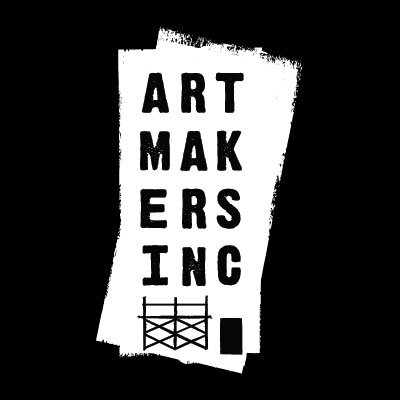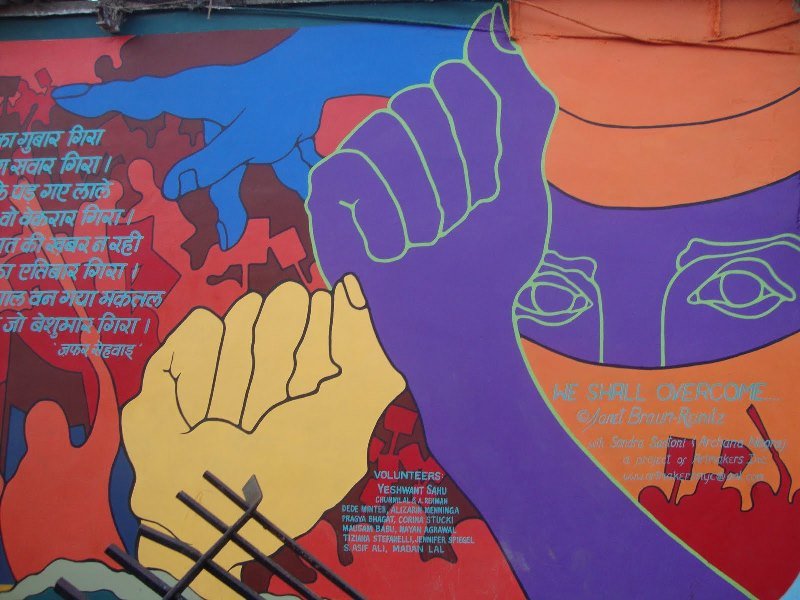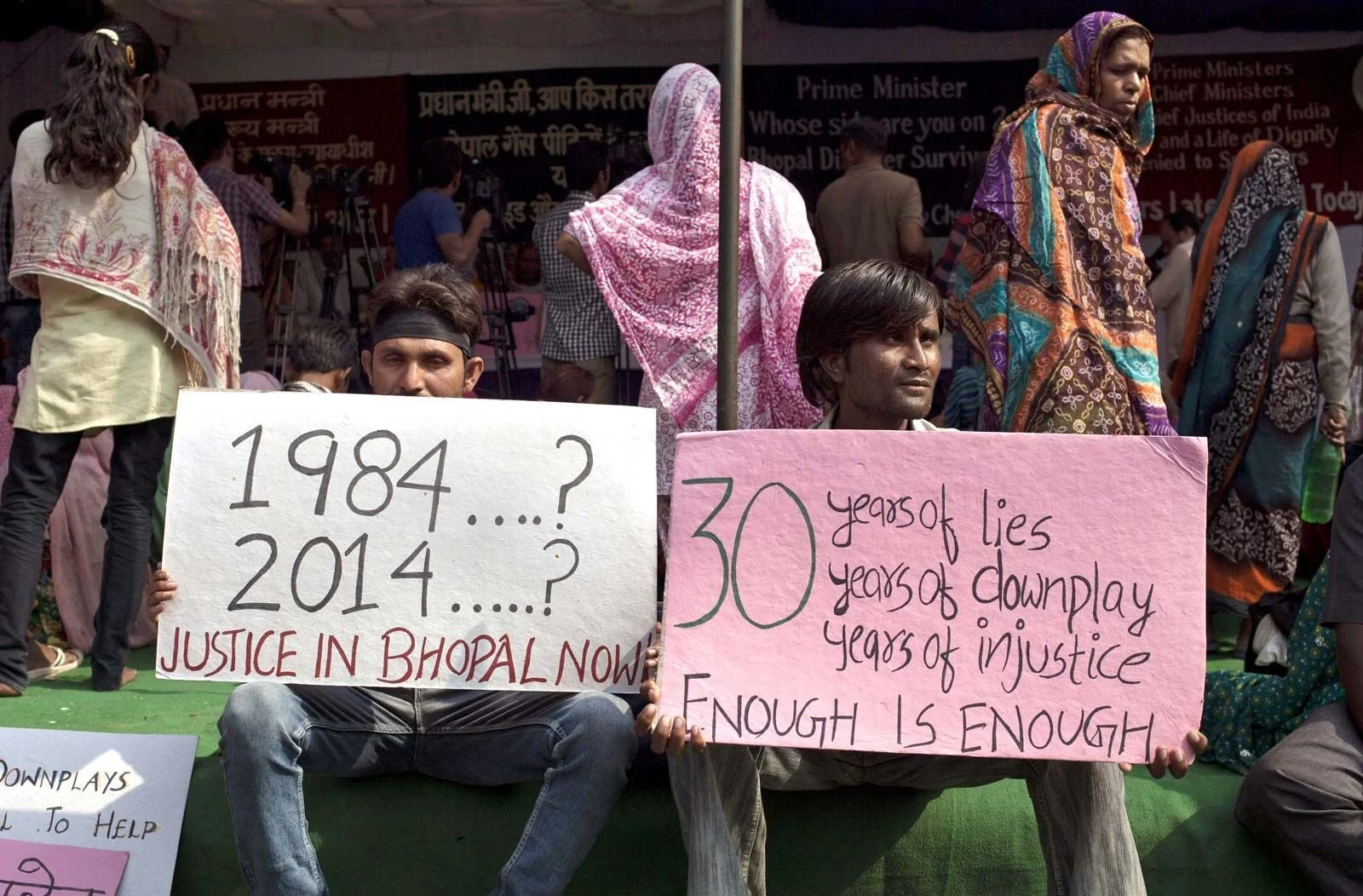We Shall We Shall Overcome…
2009
JANET BRAUN-REINITZ
Bhopal, India
9’ x 40’, acrylic on concrete
with International Campaign for Justice in Bhopal and Sambhavna Clinic
Photos © Janet Braun-Reinitz
On December 3, 1984, 45 tons of the dangerous gas methyl isocyanate escaped from an insecticide plant in Bhopal, India. The plant – an Indian subsidiary of the American Union Carbide Corporation – was understaffed and its substandard operating and safety procedures caused the catastrophe. Gas drifted over the surrounding densely populated neighborhoods, instantly killing 3,000 people and creating panic as tens of thousands attempted to flee.
Bhopal remains the worst industrial accident in history, and its victims are still waiting for justice. In the early 2000s, more than 400 tons of industrial waste remained on the site and, as of 2019, no cleanup operation of the chemical waste – which, before the explosion, was regularly dumped into the local community – has ever been conducted. No one from Union Carbide (owned since 2001 by Dow Chemical) was ever tried for the gross negligence that led to the explosion although, in 2010, several former executives of the Indian subsidiary – all Indian citizens – were convicted of negligence by a Bhopal court.
Bhopal’s legacy remains stark and unrelenting. The official death toll is still disputed, but an estimated 574,000 people were poisoned that night. Upwards of 20,000 people have since died from respiratory problems, blindness, cancer, stillbirths, miscarriages, lung and heart disease. Most haunting is the lasting impact on the second and third generation – children affected by cerebral palsy, muscular dystrophy, autism, and severe learning difficulties – and on those yet unborn.



